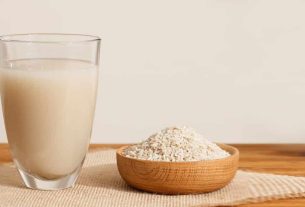In summer, skin care should be doubled, because the sun can cause burns, premature aging of the skin and even increase the risk of cancer.
Therefore, to keep your skin healthy in summer, it is important to adopt some measures, such as keeping your skin dry, free from sweat, but properly hydrated, drinking plenty of fluids during the day, using sunscreen and avoiding the hottest hours of the day.

1. Keep your skin clean, hydrated and dry
To keep your skin healthy during the summer, it is important to keep it clean and hydrated, and it is recommended to take at least 2 showers a day, as this will eliminate sweat. If it is very hot, you can take more showers, but it is recommended to use only water, avoiding soap to avoid drying out your skin.
Antiseptic soap can be useful for eliminating bacteria and other microorganisms from the armpits, intimate area and feet that can cause chilblains, for example. However, to actually prevent the proliferation of microorganisms, it is important to keep the skin dry, as moister and warmer regions of the body favor the development of microorganisms, especially fungi.
After bathing, it is important to apply a fluid moisturizing cream, at least in areas where the skin tends to be drier, such as feet, knees, hands and elbows, helping to keep the skin soft. Check out some skin moisturizer options.
2. Use sunscreen daily
Using sunscreen daily is important to prevent premature skin aging and dryness, as well as preventing the development of diseases, such as skin cancer, for example. Therefore, it is important to apply sunscreen to the entire area of the skin that is exposed to the sun, even if the person is not directly exposed to the sun.
If you go to the beach or pool, the recommendation is that sunscreen be used 20 to 30 minutes before sun exposure and applied again every 3 hours. Those who want to get a tan without harming their skin can choose to use a weaker sunscreen, with SPF 4 or 8, for example, as it is capable of filtering the sun’s harmful rays and leaves the skin more beautiful, with a golden tone.
3. Don’t shave on sunbathing days
Another important precaution in summer is not to shave your face and body the day before or the day before sun exposure, as this can cause dark spots on the skin, especially if the hair removal is done with wax. Therefore, the recommendation is that waxing be done at least 48 hours before sun exposure.
To have longer-lasting effects from hair removal, you can opt for waxing or laser hair removal, as the hair is removed from the root. However, in both ways, it is important to avoid exposure to the sun after hair removal, as the skin remains more sensitive and there is a greater likelihood of stains.
See 7 steps to perfect razor hair removal.
4. Invest in beta-carotene
To leave your skin dark and with a tan that lasts longer, it is also recommended to eat foods that contain carotenoids such as carrots, pumpkin, papaya, apples and beets, as these foods promote the production of melanin, which is a pigment naturally present in the skin. and which gives color to the skin, leaving it more tanned.
Furthermore, foods rich in beta-carotene have antioxidants, having a protective effect on the skin and preventing damage caused by the sun’s rays.
Check out the video below for more information about foods rich in beta-carotene:
5. Not having skin treatments in the summer
Avoiding laser treatments and chemical products during the summer is important, as these treatments can damage tanned skin and cause spots that are difficult to remove. The best time to carry out these treatments is during autumn and winter, when the temperature is milder and the sun is less strong, but it is always important to use sunscreen when carrying out these treatments.
Another important care is to exfoliate your skin, especially on your face and feet, once a week to eliminate dead cells and renew your skin. Check out a great homemade foot scrub recipe.
6. Take a freshwater bath when you leave the beach
After a day at the beach, you should take a bath in fresh water, preferably cold, to remove the salt and sand that tend to dry out the skin and facilitate the formation of cracks that can allow microorganisms to enter.
After bathing in fresh water, it is recommended to moisturize your skin and, to do this, you can apply sunscreen or an after-sun lotion again.
7. Avoid direct sun
In the hottest hours of the day, between 10 am and 4 pm, direct sun exposure should be avoided because at these times there are greater health risks. Therefore, at these times, you should prefer to stay in shady places, in addition to wearing a hat or cap and light clothing, to protect your skin, and sunglasses, to protect your eyes and avoid skin burns and sunstroke.
It is also important to place yourself under an umbrella or inside the beach or pool bar to protect yourself from the sun, avoiding sunstroke and skin burns.
8. Drink plenty of fluids
To avoid dehydration of the body and skin, it is important to drink at least 2 to 3 liters of water per day or other liquids, such as natural fruit juice or iced teas, as this not only prevents dehydration, but also refreshes the body. The consumption of alcoholic beverages is not recommended, as they promote the loss of water from the body and can quickly cause dehydration, especially if consumed on very hot days.
Liquids can also be ingested as food, because some fruits and vegetables have a large amount of water in their composition, and can also be a great option for hot days and to promote skin health in summer.
See in the video which foods are richest in water:

Sign up for our newsletter and stay up to date with exclusive news
that can transform your routine!
Warning: Undefined array key "title" in /home/storelat/public_html/wp-content/plugins/link-whisper-premium/templates/frontend/related-posts.php on line 12
Warning: Undefined array key "title_tag" in /home/storelat/public_html/wp-content/plugins/link-whisper-premium/templates/frontend/related-posts.php on line 13




